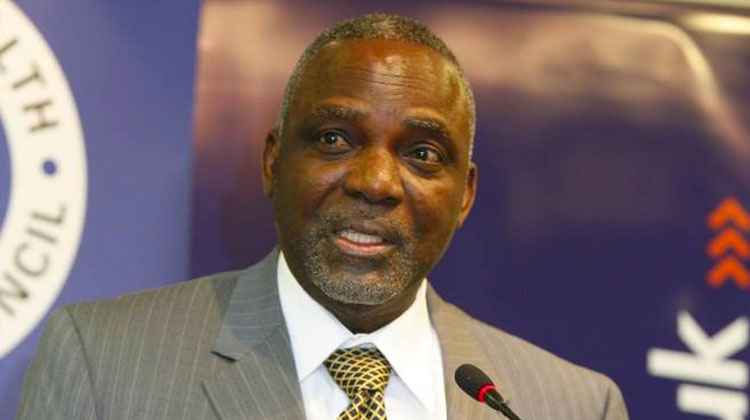A former minister of Power and chairman of Geometric Power Group, Bartholomew Nnaji, says Nigerian engineers are not just technical professionals but strategic nation builders who deserve a central seat at the policymaking table.
Nnaji, who spoke at the 33rd Engineering Assembly of the Council for the Regulation of Engineering in Nigeria (COREN) in Abuja, called on government at all levels to integrate engineers into national development planning.
He warned that the future of Nigeria depends on the synergy between engineering expertise and enlightened public policy.
“We like to say lawyers are the learned, but we are the builders — the creators of society. Engineers lay the foundation of every economy. From roads, bridges and dams to energy systems, digital networks, and healthcare access, our work enables nations to grow and prosper,” he said.
Citing China as an example, he noted that the country’s extraordinary development over the past few decades was no accident but the result of engineers holding key leadership positions.
He said, “The last three leaders of China were engineers. The overwhelming majority of people in public office in China have engineering backgrounds. That’s not fortuitous — it is deliberate, and the results speak for themselves.”
Nnaji urged Nigerian engineers to become more than technical operatives; they should become strategic thinkers, policy advocates, and innovators who understand global trends and can localise solutions for the country’s unique challenges.
He called for increased government investment in research and development, intellectual property protection, engineering education, and innovation hubs.
According to him, dedicated technology parks and transparent public-private partnership frameworks could accelerate infrastructure delivery while maintaining public accountability.
The three-day assembly, with the theme “Advancing Quality Engineering Services and Businesses in Nigeria: In the Lens of Professionalism, Compliance, and Innovation,” brought together regulators, professional engineers, lawmakers, and policy advocates to diagnose the challenges of engineering practice in Nigeria.
In his opening remarks, COREN Registrar, Okorie Uche, called for a renewed commitment to professionalism and quality service delivery, describing the assembly as a platform to challenge assumptions, confront under-regulation, and push for systemic change.
COREN, he said, remains committed to addressing quackery, non-compliance, and poor service delivery, while advocating for policy reforms and better compensation frameworks for engineers across the country.
Meanwhile, former Senate Chief Whip, Iyiola Omisore, presented a groundbreaking report on the urgent need to review Nigeria’s engineering fees and remuneration framework, calling the current regime “structurally deficient and developmentally dangerous.”
Drawing comparisons with international best practices in countries like the UK, USA, and South Africa, Omisore lamented the continued reliance on the outdated 2014 COREN Scale of Fees, which he said fails to reflect inflationary realities, professional depth, and discipline-specific complexity in engineering.
“Undervaluing engineering services is not just an economic problem; it is a national development crisis. We are witnessing systemic brain drain, ethical erosion, poor infrastructure quality, and unsafe public works, all stemming from a culture of underpricing and neglect, he said.
His six-chapter study provides a detailed breakdown of how the inadequate fee structure affects each discipline—civil, mechanical, electrical, chemical, petroleum, water resources, agricultural, and mining engineering—citing examples of avoidable disasters and project failures.
In the case of civil engineering, he linked several building collapses in Lagos and Abuja to “design shortcuts, poor material use, and compromised supervision,” all resulting from inadequate compensation structures that discourage diligence.
For mechanical and electrical engineering, Omisore highlighted risks like HVAC system failures, industrial breakdowns, and fire outbreaks in hospitals and markets—problems worsened by outdated designs and a lack of investment in digital tools and training.
He called for a comprehensive national consensus, involving engineers, government agencies, academia, and the private sector, to urgently review and institutionalise a sustainable, inflation-adjusted, and enforceable fee structure for all engineering services.
The President of the Nigerian Society of Engineers (NSE), Margaret Oguntala, echoed the call for reforms, noting that quality education and fair remuneration are crucial to restoring professionalism. She assured COREN of NSE’s continued collaboration in championing engineering integrity and excellence.
Also speaking, Speaker of the House of Representatives Tajudeen Abbas, who was represented by Chairman of the House Committee on Science and Engineering Inuwa Garba, pledged the National Assembly’s support in establishing a legislative framework that guarantees respect, remuneration, and regulatory backing for Nigerian engineers.
“Quality engineering is not just a goal; it is the foundation of national development. We are committed to creating a system where engineers are adequately supported and where standards are strictly enforced,” he said.
We’ve got the edge. Get real-time reports, breaking scoops, and exclusive angles delivered straight to your phone. Don’t settle for stale news. Join LEADERSHIP NEWS on WhatsApp for 24/7 updates →
Join Our WhatsApp Channel










